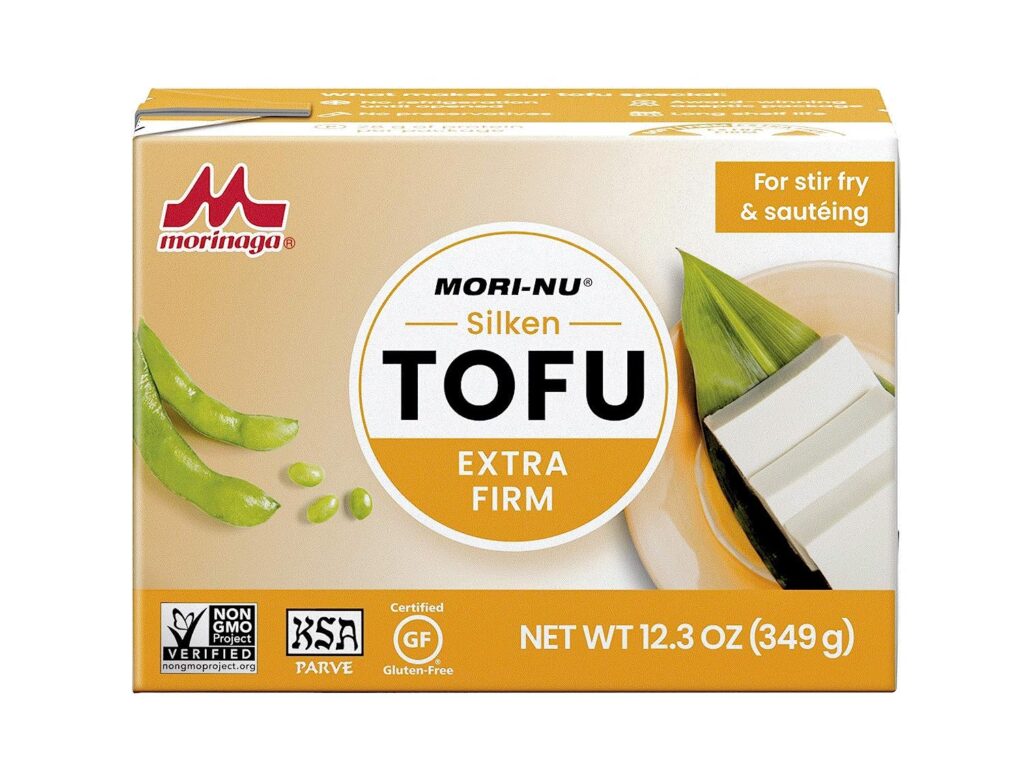Tofu
Overview
Tofu, a staple in Asian cuisine, has gained widespread popularity globally for its versatility and nutritional benefits. As a plant-based protein source, tofu serves as a cornerstone in vegetarian and vegan diets. Understanding its composition, health benefits, and potential risks is crucial for incorporating it into a balanced diet.
What is Tofu?
Tofu, also known as bean curd, is a soy-based food made by coagulating soy milk and pressing the resulting curds into soft, white blocks. Its mild flavor and ability to absorb various flavors make it a versatile ingredient in a myriad of dishes, from stir-fries to smoothies.

Is Tofu Good for You?
Tofu boasts an impressive nutritional profile, making it a valuable addition to a healthy diet. Rich in protein, iron, calcium, and other essential nutrients, tofu offers numerous health benefits when consumed in moderation.
Top Health Benefits of Tofu
- High-Quality Protein: Tofu is an excellent source of plant-based protein, containing all nine essential amino acids necessary for optimal bodily function. Incorporating tofu into meals can help meet daily protein requirements, aiding in muscle repair and growth.
- Heart Health: Regular consumption of tofu may promote heart health by lowering levels of LDL cholesterol, often referred to as “bad” cholesterol. Its low saturated fat content and abundance of heart-healthy unsaturated fats make it a heart-smart choice.
- Bone Strength: Tofu is a rich source of calcium and magnesium, essential minerals for maintaining bone health and preventing osteoporosis. Including tofu in the diet can contribute to strong and healthy bones, especially important for individuals following a plant-based diet.
- Weight Management: With its high protein content and low-calorie density, tofu can aid in weight management by promoting satiety and reducing calorie intake. Incorporating tofu into meals may help control appetite and support healthy weight loss or maintenance.
- Cancer Prevention: Some research suggests that the isoflavones found in tofu may have anticancer properties, particularly in reducing the risk of breast and prostate cancers. However, more studies are needed to confirm these findings conclusively.
Nutrition Profile of Tofu
Tofu is a nutrient-dense food, offering a variety of essential vitamins and minerals in each serving. A typical serving of tofu (100 grams) provides approximately:
- Protein: 8 grams
- Fat: 4 grams
- Carbohydrates: 2 grams
- Calcium: 350 milligrams
- Iron: 2 milligrams
- Magnesium: 60 milligrams
Advertisement;

Mori-Nu Silken Tofu, Extra Firm, 349G
Health Benefits of Tofu: Specific Health Conditions
1. Cardiovascular Health
- Cholesterol Profile: Tofu’s low saturated fat and cholesterol content help maintain healthy blood cholesterol levels, reducing the risk of heart disease.
- Blood Pressure Regulation: Potassium in tofu aids in regulating blood pressure, supporting overall heart health.
- Glycemic Index: Tofu’s low glycemic index provides sustained energy without causing spikes in blood sugar levels.
- Appetite Control: Tofu’s high protein content promotes satiety, aiding in appetite control and blood sugar management.
3. Cancer Prevention
- Breast and Prostate Cancer: Tofu’s isoflavones show potential in inhibiting cancer cell growth, reducing the risk of breast and prostate cancers.
4. Weight Loss Support
- Calorie Density: Tofu’s low-calorie density makes it an ideal addition to weight loss diets.
- Satiety: Tofu’s high protein content helps control appetite, facilitating weight loss and management.
5. Osteoporosis Prevention
- Bone Strength: Tofu’s calcium, magnesium, and phosphorus content supports bone strength and density, reducing the risk of osteoporosis.
6. Menopause Symptom Relief
- Hot Flashes: Tofu’s isoflavones may alleviate menopausal symptoms such as hot flashes and night sweats.
- Hormonal Balance: Tofu’s estrogen-like properties promote hormonal balance during menopause.
7. Liver Damage Protection
- Antioxidant Properties: Tofu’s antioxidants help protect against liver damage caused by oxidative stress and inflammation.
- Liver Health: Tofu’s bioactive compounds reduce liver fat accumulation and improve liver function markers.
Tofu Risks and Warnings
While tofu offers numerous health benefits, there are some cautions to consider:
- Soy Allergies: Individuals with soy allergies should avoid consuming tofu or soy-based products to prevent allergic reactions, which can range from mild itching to severe anaphylaxis.
- Hormonal Effects: Some concerns have been raised regarding the impact of soy isoflavones on hormonal balance, particularly in individuals with thyroid disorders or hormonal imbalances. However, current research suggests that moderate consumption of tofu is unlikely to cause adverse effects on hormone levels in healthy individuals.
- GMO Concerns: Most soybeans used in tofu production are genetically modified, raising concerns about the potential health and environmental impacts of GMO crops. Choosing organic or non-GMO tofu can mitigate these concerns for those who prefer to avoid GMOs.
Tofu Vs Paneer – What’s the difference?
Tofu vs. Paneer: A Nutritional Showdown
When it comes to plant-based versus dairy-based protein sources, tofu and paneer (Indian cottage cheese) often find themselves in the spotlight. Let’s delve into their nutritional profiles and benefits to determine which one reigns supreme.
Tofu: The Plant-Powered Protein
Tofu, crafted from soybeans, offers a plethora of health benefits. Rich in plant-based protein, tofu is a boon for vegetarians and vegans seeking to meet their protein needs. Additionally, tofu is low in saturated fat and cholesterol, making it a heart-healthy choice. With its versatility and ability to absorb flavors, tofu shines in a variety of cuisines, from Asian stir-fries to Western salads.
Paneer: The Dairy Delight
Paneer, a beloved staple in Indian cuisine, is a type of cheese made by curdling milk with lemon juice or vinegar. While paneer provides a significant amount of protein and calcium, it also comes with a higher saturated fat and cholesterol content compared to tofu. Its rich and creamy texture lends itself well to Indian curries, gravies, and desserts, adding a luxurious touch to dishes.
Nutritional Comparison
In terms of protein content, tofu and paneer are neck and neck, with both offering approximately 8 grams of protein per 100-gram serving. However, tofu edges ahead in the health department, boasting lower saturated fat and cholesterol levels compared to paneer. Additionally, tofu contains beneficial plant compounds like isoflavones, which have been linked to various health benefits such as improved heart health and reduced cancer risk.
On the other hand, paneer’s calcium content surpasses that of tofu, making it an excellent choice for individuals looking to boost their calcium intake. However, the higher saturated fat content in paneer may raise concerns for those monitoring their cholesterol levels or overall heart health.
The Verdict
While both tofu and paneer offer their own set of nutritional benefits, tofu emerges as the healthier option due to its lower saturated fat and cholesterol content, as well as its plant-based origin. However, paneer remains a valuable source of protein and calcium for individuals who consume dairy products and enjoy the rich, creamy taste it brings to dishes. Ultimately, the choice between tofu and paneer comes down to personal preferences, dietary restrictions, and health goals. Whether you’re stirring up a tofu stir-fry or indulging in a paneer tikka masala, both options can be enjoyed as part of a balanced diet.
• Read Another Article – Health Benefits Of Aparajita
In conclusion, tofu is a nutritious and versatile food with numerous health benefits when consumed as part of a balanced diet. While it may not be suitable for everyone, incorporating tofu into meals can contribute to improved health and well-being, particularly for those following vegetarian or vegan lifestyles. As with any food, moderation and variety are key to reaping the full benefits of tofu while minimizing potential risks.


Pingback: Tofu vs Paneer which is good? - ECG Oxford
Pingback: Tofu vs Paneer which is good? - Health Google
Pingback: Tofu vs paneer which is good? - MedTimes
Pingback: Tofu vs paneer which is good? - MedWebMD
Pingback: Tofu vs paneer which is best for health? - Modern Health
Pingback: Health Benefits of Almonds - AcconstHost
Got info that was i searching for
Is tofu safe during pregnancy and if you have a baby who still feeds on breastmilk
Is tofu eating safe during pregnancy